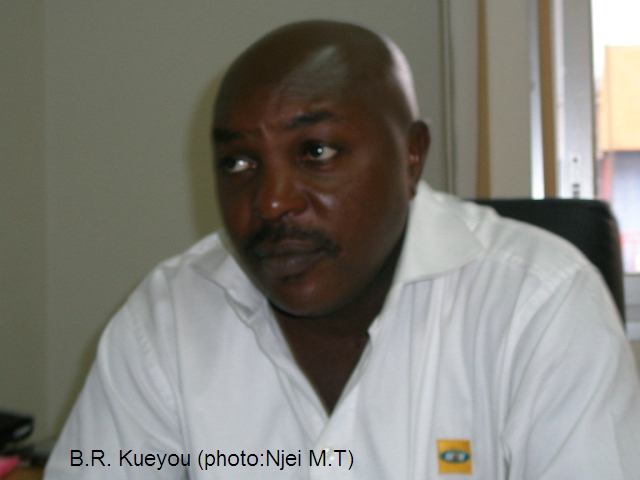17 Aug 2006
The small Central African nation of Cameroon (pop 17m) is one of the countries in the world that is still lacking in Internet connectivity. Less than 1% of the population has access to the Internet. This is an abysmal figure for a country with a literacy rate of 82%.
The very few people that do have some access to the Internet depend on a hand full of ISPs (Internet Service providers) whose services are rather expensive, shoddy and severely restricted to small geographic zones. The government-owned telecommunications company (CAMTEL) has not lived up to expectation considering the paltry sums she has so far invested in capacity building.
A recent chat with Bernard Roy Kueyou, Products Manager, MTN Networks Solutions, in his Douala office, however gave me reason to hope. “Negotiations between Global Net (an ISP) and MTN Cameroon (mobile telephone company) started in May 2005 to explore the possibility of working together in partnership to provide better Internet Services to a larger number of Cameroonians”. “That partnership resulted in the creation of a new company in December 2005 called MTN Network Solutions”. Talking on the projections of the new company, Kueyou said; “Huge investment is ongoing to provide fixed wireless Internet solutions to 10 cities (provincial headquarters) by December 2006”. These New Generation networks (NGN) will rely on the first National Internet Backbone and are expected to provide Internet signals that cover a radius of 25kms from each city. This investment that he called “Last mile solution” will have a “huge capacity” of 34mb/second and the Internet source is the SAT 3 fiber (a fiber optics underwater cable that had been hooked to Cameroon for years but grossly under-utilized). What were consumers expecting from the new company? “Band width usage will range between 64kb to 2megabits per user and pricing will depend on whether the bandwidth is dedicated or shared.” Kueyou said.

Kueyou: CAMTEL needs to invest in capacity building.
From my findings, it was obvious that the cost of getting hooked to 24 hours Internet at MTN Networks solutions is still very high for the average Cameroonian. For access to the minimum bandwidth (64kb), a customer is expected to make a non-refundable initial down payment of $300 and pay monthly bills of about $10 for one year and subsequently $40 every month as recurring fee. When I asked Kueyou what the low- income people expect from this new outfit, he said “We are considering prepaid solutions for lower income people who will have to use the Internet according to their budget”. This means that the consumer will pay according to the length of time he/she spends on the Internet.
I asked Kueyou what is needed to facilitate the growth of the Internet in Cameroon? “CAMTEL needs to invest in capacity building. It is her duty to provide a national backbone from which ISPs could hook and provide Internet to Cameroonians”. “We expect the government to use the ‘telecommunications funds’ to accompany us (private sector) build infrastructure and develop content”. Kueyou added that the other problems that demand attention include; “high taxes”, “the need to extend access to electricity and computers” and the possibility of seeking external assistance to subsidize this sector that is very vital for development and the advancement of knowledge”.
Meanwhile it should be noted that MTN Cameroon has started testing another parallel Internet option called GPRS/EDGE. This MTN Cameroon mobile access solution involves delivering Internet to consumers via mobile telephones. The advantage of this option is that it will eventually cover a larger geographic area because MTN mobile telephone signals do reach most parts of Cameroon. The only drawback is the relative slow speed that is associated with the mobile access solution.
The Internet landscape in Cameroon will be completely changed for the better when these twin projects become fully operational. For now, only a few Cameroonians living in the big cities do utilize the Internet and most depend on Cyber cafes that charge between 60 cents to $1.20 per hour.
Njei Moses Timah
|